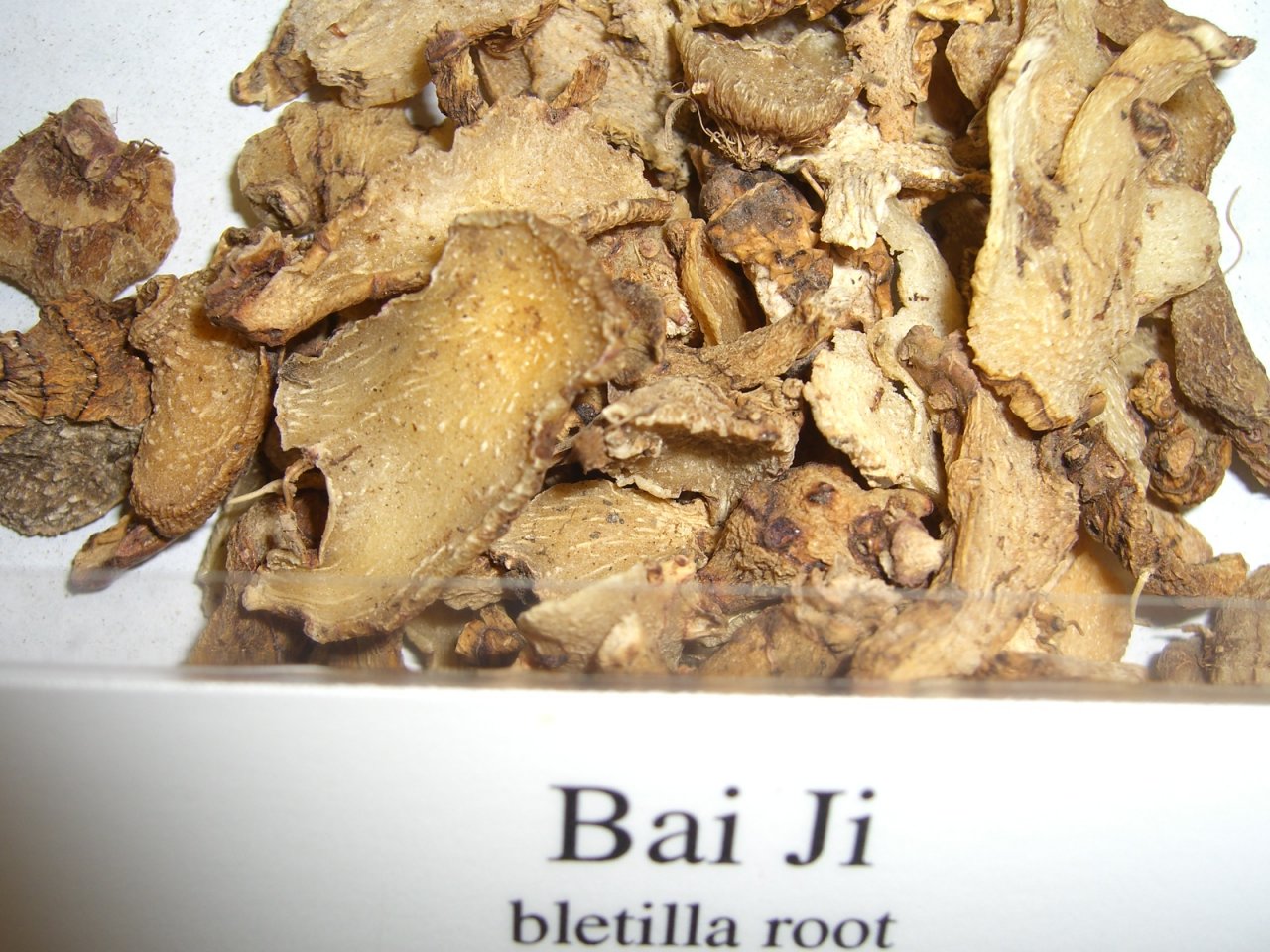Bai Ji

  | Bai Ji in TCM:Explore the properties of Bai Ji according to Chinese
Nutrition and Traditional Chinese Medicine (TCM):
Factoids:
English Name: Bletilla tuber (Hyacinth or Common)
Pharmaceutical Name: Rhizoma Bletillae
Properties: bitter, sweet, astringent, cool
Temperature: cool
Channels: LU, ST, LV
Flavors: astringent, sweet, bitter
Special Properties:
stops bleeding, reduces swelling
Actions / Indications:
- Restrains leakage of blood; stop bleeding (hematemesis,
nasal bleeding, hemoptysis, TB, apply locally for traumatic injury)
- Reduces swelling; generates flesh (use topically
for burns, sores, ulcers, chapped skin, anal fissures; internally for
chronic non-healing ulcers of the ST and duodenum
Special Notes:
- (note: slightly cold)
- This herb is sticky and astringent in nature, and may cause constipation
- One of the most effective herbs to stop gastrointestinal bleeding.
Its strong binding effect will attach itself to the ulcer to stop bleeding
and promote healing.
Contraindications:
- (cc: external invasion cough with blood in sputum)
- (cc: early stage lung abcess)
- (cc: excess heat in LU or ST)
- (cc: incompatible with wu tou, fu zi)
Disclaimer: In accordance with our terms of service, by using this web site you agree that none of the information found on this web site constitutes medical advice. You should always consult your doctor before trying any particular food or herbal remedy to treat disease.
Folk remedies presented on this site are designed to address specifc TCM diagnoses, and are not one-size-fits-all. If you would like to learn more about Traditional Chinese Medicine (TCM) and how it relates to Chinese Nutrition, you can book in a free call with a licensed professional. There is no obligation to purchase.
[CLICK HERE for your free INITIAL CONSULTATION] |

